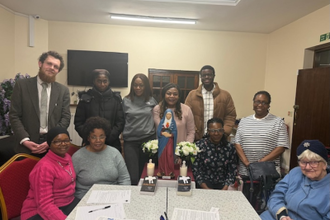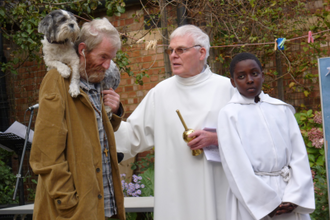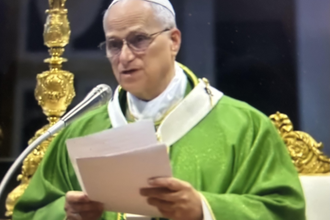Churches challenged to be advocates of peace
Simply talking about overcoming violence in the aftermath of the events of 11 September may seem impossible, says World Council of Churches General Secretary the Rev Dr Konrad Raiser. However, he said, those events have sharpened the awareness of the potential for violence on society and culture and economies. And they have made it even more necessary to understand the forces that lie behind such violence. Dr Raiser was speaking on Friday in London at a seminar for faith and society leaders organised by Churches Together in Britain and Ireland, "Problem or Opportunity? The role of religions in a violent world." In the twentieth century, he said, the world became a more violent place. Since the end of the Cold War people seemed to be looking to solve conflicts violently. The WCC had felt there had been a qualitative change in the expectations of the WCC from within and beyond its own membership. It is out of this sense of desperation that the Decade to Overcome Violence (DOV) for 2001 to 2010 has come. It runs parallel to the United Nations' decade for building a culture of peace, demonstrating that the quest for peace is not a uniquely Christian concern. The question Dr Raiser put, is what is the role of religion in all of this? He analysed the thesis of Samuel Huntington of Harvard University, an adviser to the United States Defence Department. On rereading this thesis he found it had considerable influence on American policy. The whole notion of the "War against Terrorism" has legitimated the behaviour of other governments in their disputes with those they hold to be terrorists, whether they be in Chechnya, or India and Pakistan or Israel/Palestine. "The War Against Terrorism has increased the spiral of violence," he said. One of Dr Raiser's main criticisms of Huntington's thesis was that his whole concept of seven integrated religiously orientated civilisations is unrealistic. He regretted the fact that United States action seems to derive much validation from such thinking. Dr Raiser argued that his thesis was essentially flawed in being too static an interpretation of culture, too limited in its ability to deal with religion in its own terms and too imbued with an understanding of security limited to that of "defending interests". The events of 11 September showed both how the United States was in reality vulnerable, that age old secular analyses of security were inadequate and that the world was faced with the urgency of creating a new "mobilisation for peace". And it is into this need that the DOV hopes to contribute in a humble way. He described the DOV which succeeded the (1994 to 2000) Programme to Overcome Violence to as a "space for discernment" in an ever more complex world where churches are invited to engage together and with others to address the question of how violence can be overcome at any level, in their own context and to contribute in the light of 11 September to reshaping the interpretative framework for just and peaceful living. Asked if it was realistic to suppose the churches could make a difference in a decade, Dr Raiser said that churches could make a difference if the whole issue of creating a culture of peace was brought in from the edge. The churches have a key role as advocates for peace and truth. The churches have to recognise however that they are part of the problem. But they do have an opportunity to bring to the attention of policymakers their own understanding of the positive contributions of religion in conflict situations. During the DOV the churches are to be encouraged to look for opportunities to be mediators. He concluded: "We cannot expect at the end of the decade for violence to be over but we can trust that the spirit of reconciliation will transform the churches and help them create a culture of peace for all." The event was hosted by the Cardinal Archbishop of Westminster, who was represented by Bishop Crispian Hollis.















